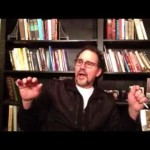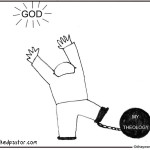We run our website the way we wished the whole internet worked: we provide high quality original content with no ads. We are funded solely by your direct support. Please consider supporting this project.

Divine Drama
Jeff K. Clark posted last week on God as Master Story-Teller and Finding Our Place Within the Divine Drama. There’s an enormous difference between talking about God using abstractions versus locating him in the stories he has chosen to inhabit. God comes to us not only in the history of his interactions with his people, but in our day-to-day stories as God breaks in to make himself known. How will your life become God-talk to the world around you?
From the post:
Church becomes a place of stories and story telling, and truth is conveyed not as general ideas, but living realities. Here God-talk shifts from discussing abstract theories related to the Divine and into real-life drama that sees God as the One who is intimately involved in the story. God’s story becomes our story and our role is to tell our story within God’s story. Meaningless, unstoried God-talk is replaced with meaningful, storied God-talk and life is finally fused into the drama where God is the Master storyteller and we as actors in the play of the ages.
Find your place. Take a seat. Tell your story.
Image by pedro veneroso. Sourced via Flickr.
Category: General
Tags: Christian Living, Theology
Related Reading

Hearing and Responding to God: Part 4
Are you inadvertently appealing to magic when you listen for God’s voice? Greg continues his series on hearing and responding to God by pointing out the difference between communion with God and Christian magic. You can view the previous videos here and here and here.

How Can Mega-Church Preachers Keep Their Ego in Check? (podcast)
Greg confesses his own early insecurities as a church leader and shares some of the insights that helped free him from destructive thinking. Episode 568 http://traffic.libsyn.com/askgregboyd/Episode_0568.mp3

Our Commitment to Love (and Avoiding Theological Idolatry)
Given that we have just launched ReKnew, I thought it would be helpful to spend a good portion of our initial blogs unpacking the theological vision of ReKnew. Our goal is to post content to the site at least three or four times a week, with two of these posts (on average) being fresh content from me addressing particular theological topics. The other posts will be things such as videos, quotes of the day, featured articles from elsewhere on the web questions from readers, and so on.
Before I begin unpacking ReKnew’s theological vision in subsequent posts, however, today I want to offer four preliminary words about the theological convictions I’ll be espousing.


